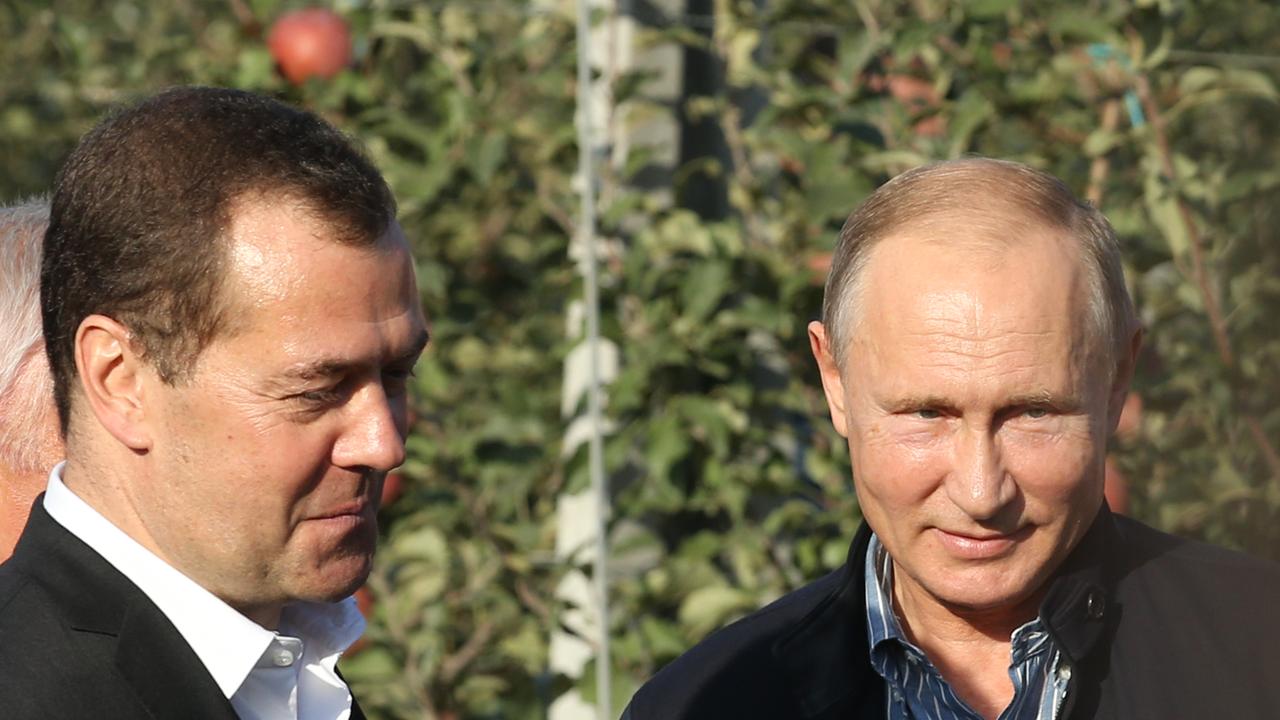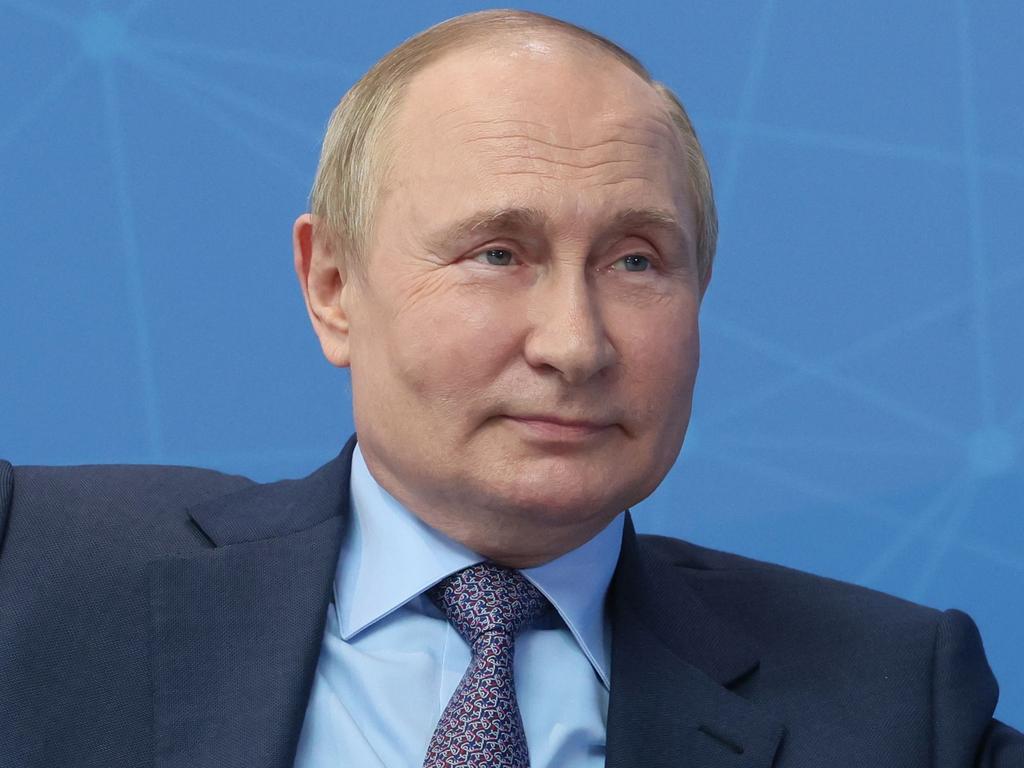
This article is more than
3 year oldOne of Vladimir Putin’s most loyal allies has claimed the “horsemen of the apocalypse are on their way” as he warned the US not to supply Ukraine with weapons.
Dmitry Medvedev, Russia’s former president, threatened the West with an all-out attack over its military support for Ukraine, The Sun reports.
Known as Putin’s “yes man”, 56-year-old Medvedev was previously seen as more moderate than the Russian leader, although he has taken an increasingly hard line in recent years.
As deputy head of Russia’s national security council, he issued a chilling threat to Ukraine and its allies last week.

Referring to his fiery posts on the messaging app Telegram, he said: “I am often asked why my Telegram posts are so harsh. The answer is I hate them. They are b******s and degenerates.
“They want death for Russia. And while I’m alive, I will do everything to make them disappear.”
It follows an earlier warning from Medvedev, who served as Russian president between 2008 and 2012, that Russia was ready to expand its military operations if it came under attack from Western missiles supplied to Ukraine.
“The horsemen of the apocalypse are already on their way,” he said.

Ex-Russian opposition MP Dmitry Gudkov has claimed Medvedev is preparing a power grab if Putin is forced from office.
“He is trying to please the hardliners in the hope that they will promote him, in the event of Putin leaving office,” he told The Times.
In April, he wrote a rambling Telegram post justifying the invasion of Ukraine and calling for the expansion of Russian influence across all of Europe and Asia.
He said that the “complex tasks” of “demilitarisation and denazification of Ukraine” were the key goals and that they would not just be decided “on the battlefield”.
In a longwinded letter, he wrote: “To change the bloody and full of false myths consciousness of a part of today’s Ukrainians is the most important goal.
“The goal is for the sake of peace of future generations of Ukrainians themselves and the opportunity to finally build an open Eurasia - from Lisbon to Vladivostok.”
While last month, Medvedev called on the West to stop supplying arms to Ukraine.
He said: “The endless talk by foreign analysts about a war between NATO and Russia continues unabated.
“The cynicism of Western ‘talking heads’ is becoming more and more blatant. The thesis that Russia threatens the world with a nuclear conflict is being pushed to the top of the agenda.
“Even [Donald] Trump recently came out with this, though, understandably, just to spite [Joe] Biden.
“And of course, the Europeans are squeaking their little voices.”
He added: “In the context of the proxy war with Russia unleashed by the Western countries, I want to articulate very clearly once again the things that are so obvious to all reasonable to people.
“One, the pumping of Ukraine with weapons by NATO countries, the preparation of its troops to use Western equipment, the sending of mercenaries and the conduct of exercises by Alliance countries near our borders increases the likelihood of a direct and open conflict between NATO and Russia instead of the ‘proxy war’ they are waging.
“Two, such a conflict always has a risk of escalating into a full-fledged nuclear war.
“Three, this would be a catastrophic scenario for all. That’s it.
“So you don’t have to lie to yourself and others. You just have to think about the possible consequences of your actions.
“And don’t choke on your own saliva in paroxysms of Russophobia.”

Medvedev’s increasingly hardline stance is seen as an appeal to the Russian military, who previously saw him as too liberal.
When he was elected president of Russia in 2008 - after Putin was forced to step down due to term limits - he seemed to offer a very different vision to his predecessor.
“Freedom is better than non-freedom,” he said, as he talked of “genuine democracy” and briefly seemed to be seeking closer ties with Washington.
But since the invasion of Ukraine, he has parroted the war rhetoric of Putin, accusing President Zelensky and other Ukrainian officials of being Nazis and drug addicts.
However, he isn’t regarded as one of the favourites to take over if Putin, 69, bows out or is forced to resign.
Former Kremlin adviser Gleb Pavlovsky said Medvedev has “no chance” of becoming president again.
“He is not a popular person,” he said, referring to Medvedev’s low approval ratings during his eight years as Russian prime minister between 2012 and 2020.
Medvedev’s rhetoric could be less to do with his bid for power and more to do with self-preservation.
As Moscow’s atmosphere becomes ever-more oppressive, Medvedev may be trying to protect himself from accusations of links to liberal politicians and businessmen, according to political analyst Maria Snegovaya.
A number of Medvedev’s former allies have been jailed in recent years, while his former adviser Arkady Dvorkovich was accused of a national betrayal after speaking out against the war.
While Putin looks to cement his position, he has spoken chillingly of the need to “purify” Russia of “national traitors”.
This story was published by The Sun and was reproduced with permission.